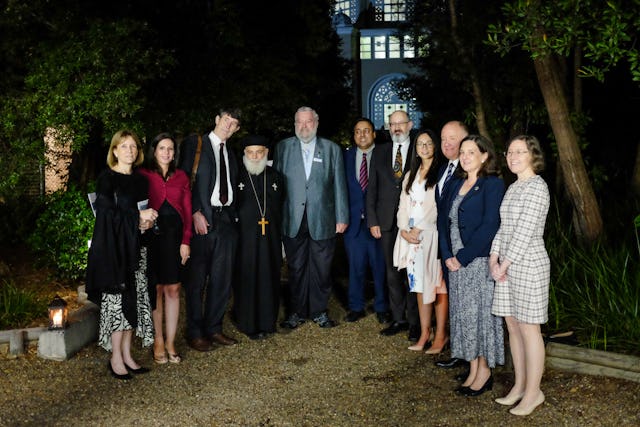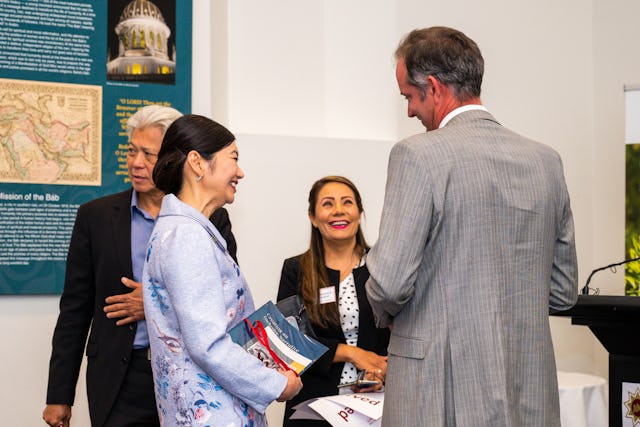“100 years of fostering unity”: Conversations on social cohesion move across Australia as centenary draws to close
SYDNEY — In the span of just a few months, Creating an Inclusive Narrative—a publication of the Australian Bahá’í community released last November—has stimulated profound discussions among government officials, social actors, journalists, faith communities and others in gatherings across states and territories in the country.
A recent discussion was held at the Bahá’í House of Worship in Sydney, coming at an important time for the Australian Bahá’í community when it is marking the closing of the centenary year of its establishment in the country. “The centenary of the Bahá’í community represents a hundred years of learning about fostering unity in diversity,” says Venus Khalessi of the country’s Bahá’í Office of External Affairs.
In remarks on behalf of the Prime Minister of Australia, Member of Parliament Jason Falinski spoke at the gathering, stating: “Safeguarding our cohesion is not just a matter for government. It is something that belongs to all of us. … Bahá’í Australians have made a significant contribution to building our multicultural nation and inclusive national identity.”
“Faith has the capacity to be a powerful uniting force,” Mr. Falinksi continued, “bringing people together in a spirit of belonging and harmony. … It is a source of comfort, of solace, and of resilience for so many Australians.”
The Bahá’í community’s journey over the last century is the story of faith as a powerful impulse for greater unity, explained Fiona Scott, a member of the country’s Bahá’í National Spiritual Assembly. Speaking about the first group of Bahá’ís who arrived on Australia’s shores, Dr. Scott described how they “were fueled by the vision of a world at peace, a world that values and harmonizes the diversity of the human race.
“They would not have dreamt that a hundred years later the Australian Bahá’í community would comprise well over 80 ethnic and racial groups in more than 417 localities around this nation.”
At a gathering in the state of South Australia, Jing Lee, the assistant minister to the premier of South Australia, referred to the recently published Creating an inclusive Narrative, stating: “The values of the Bahá’í Faith connect individuals, the community, and even institutions. I’m an individual standing here, but I also come from a community and an institution—this Parliament House, our democratic system.”
What the publication shows, Mrs. Lee continued, is “how all those things come together to promote oneness in humanity, that men and women are equal, that we all have a joint responsibility… to a collaborative framework. This particular publication challenges us, collectively with all the research behind it, to think a little bit further… and not just talk about it, but work towards common goals.”
Philippa Rowland, president of the Multifaith Association of South Australia, said that “the publication … manages to combine individual perspectives within the larger picture of how our [society] operates. More importantly, it draws a practical arc from learning where we have come, to understanding our present situation and having the collective courage to imagine that we can bring into being a better future for all.
“This dialogue on how we can create an inclusive narrative,” she continued, “is at the heart of an important journey that speaks strongly to interfaith harmony and peaceful mutually rewarding coexistence in a multicultural society.”


